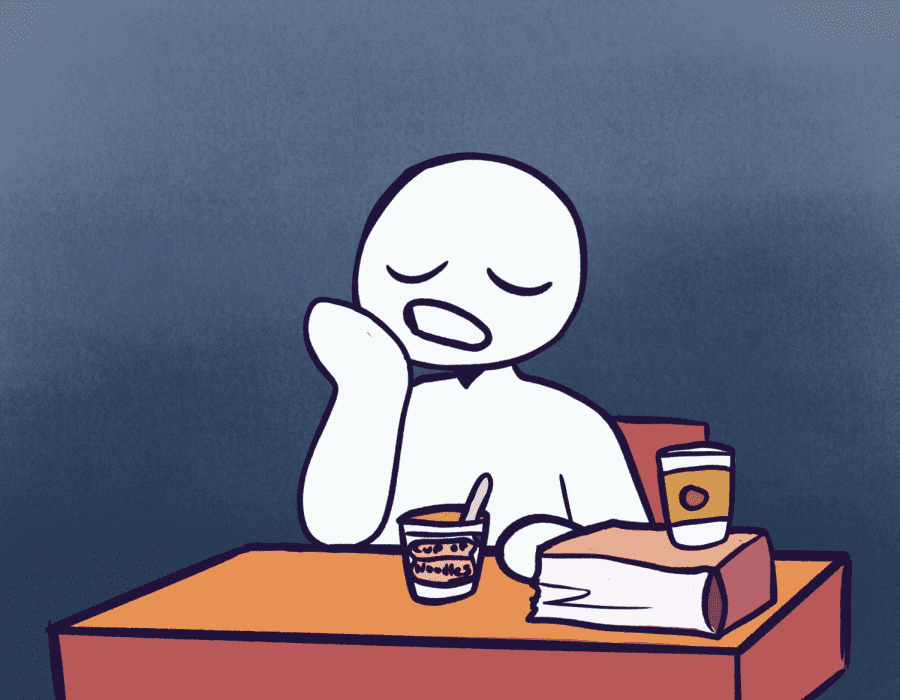Opinion | UI embraces poor student health | Part II
October 20, 2022
Editor’s note: A previous version of this opinion column contained factual errors regarding appointment scheduling and hours of operation. The opinion has since been updated to accurately reflect the information. The Daily Illini regrets these errors.
Trigger warning: This column contains discussions of suicide.
Students are stressed. Midterms every week, deadlines every night — it’s hard to catch a break. Mental health is often disregarded to reach these academic goals, and if this issue is not addressed, students’ well-being will plummet. In turn, mental health issues can cause students to perform poorly in classes, leading them to drop out or — in extreme cases — harm themselves.
Every year, about 1,100 suicides occur on college campuses in the United States.
The University needs to treat mental health as a priority. If it does not, students will continue to struggle down a path that can lead to devastating and lethal outcomes.
Get The Daily Illini in your inbox!
Another DI article from May of this year raises concerns about student mental health resources on campus. Several students along with their professor in CMN 250: Social Movement Communication said they felt the resources for mental health on campus were lacking. Hearing student and faculty voices speak out should be a wake-up call to the University.
Currently, there are some issues with the mental health services provided at the University. The University of Illinois Counseling Center does not meet acceptable standards for student care. On Google Reviews, it has a rating of only 2.7 stars out of five. When we entrust institutions with the health of students, anything less than five stars is unacceptable.
The Counseling Center’s hours also do not consider students’ busy schedules: The Counseling Center is open from 8 a.m. to 5 p.m. on Monday, Tuesday and Friday and 8 a.m. to 7 p.m on Wednesdays and Thursdays, which are times when most students have classes, work or extracurriculars.
Campus Recreation offers events and workshops to promote student health. Specifically, they are supposed to offer student wellness activities. Unfortunately, its calendar does not currently show any events scheduled for student wellness. In a school of 56,299 students, wellness activities can make all the difference — Campus Recreation should deliver on its word.
Some changes need to be made. The University can start by providing certain days off from classes for students to focus on mental health. On these days, they should hold activities to help students destress or address their mental health state.
Faculty can play a part in rectifying this problem too. Requiring instructors to periodically ask their students if their mental health is affected by the class workload can provide important student feedback. Mental health should be just as important as education when constructing a class curriculum.
Additionally, a lot of students don’t know where to look for resources. An easy way to fix this is to provide some mental health resources on course Canvas pages or syllabi. Here are a few:
- SAMHSA National Helpline (24/7): 1-800-662-HELP (4357)
- Rosecrance Crisis Hotline (24/7): (217)-359-4141
- 988 Suicide and Crisis Lifeline: Dial 988
- Crisis Text Line (24/7): Text “HELLO” to 741741
- Campus Resources (additional resources here)
By taking small steps like these, the University can begin to combat student mental health struggles. There are a lot of changes that need to be made, and students can help too. Reaching out to someone who you think may be struggling or having open conversations about mental health can help destigmatize it.
Mental health is too important to not talk about, and it’s time the University has that conversation.
Maggie is a sophomore in Media.







